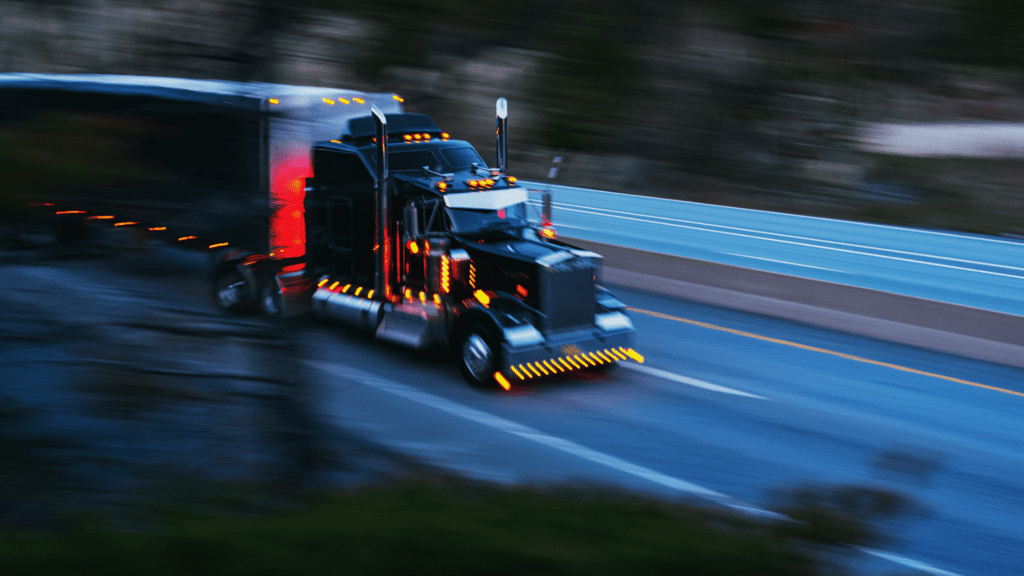
Navigating the complexities of truck accident settlements can be a daunting task for those who have been injured in a trucking accident. In 2024, understanding the legal process and securing fair compensation remains crucial for accident victims. This comprehensive guide aims to provide valuable insights into truck accident liability, the claims process, and the importance of having experienced legal representation like Nigh Goldenberg Raso & Vaughn by your side.
From determining liability in a truck accident lawsuit to assessing damages and compensation, this article will cover the essential aspects of pursuing a successful truck accident settlement. Readers will gain a deeper understanding of the causes of truck accidents, proving liability, and the role of skilled truck accident attorneys in fighting for their rights. By the end of this guide, those affected by a semi truck accident will be better equipped to navigate the legal landscape and seek the justice they deserve.
Who is Liable for a Truck Accident?
Determining liability in a truck accident can be complex, as multiple parties may be held responsible depending on the circumstances. Truck accidents may involve privately owned business vehicles, municipal vehicles, or interstate commercial vehicles, each with its own set of liability considerations.
When a privately owned business truck is involved in an accident while being used for commercial purposes, the injured party generally has claims against the company and its insurance. However, if the truck was being used for non-work purposes or there is a question about whether its use was in the course of business, the injured person may have to file suit directly against the truck driver.
Accidents involving municipal vehicles, such as dump trucks or street sweepers, may require filing claims against the city, county, or municipality. These claims often have additional procedural requirements and shorter filing deadlines.
Interstate commercial vehicle accidents, such as those involving tractor-trailers or 18-wheelers, can be incredibly complicated. Interstate trucking is heavily regulated by numerous federal and state laws governing driver training, health, behavior, and truck maintenance, inspection, and certification.
In these cases, an injured plaintiff may have multiple truck accident liability claims against various parties, including the truck driver, shipping company, truck owner, shipment owner, vehicle or parts manufacturer, maintenance company, or other third parties.
The Legal Process for Truck Accident Lawsuits
The legal process for truck accident lawsuits typically begins with filing claims against the trucking company’s insurance policies and surety bonds, which are required to be at least $750,000 and up to $5 million for trucks carrying hazardous substances. Insurance adjusters investigate these claims to determine liability and damages, and may deny claims if they believe the trucking company was not negligent or the accident did not cause the claimed injuries.
If the insurance company denies the claim or refuses to negotiate a fair settlement, the next step is filing a lawsuit against the trucking company. The complaint explains how the accident happened, why the trucking company is liable, and the damages sought. Even after filing suit, many cases still settle as litigation proceeds.
Proving liability in truck accident cases can be challenging, often requiring extensive investigation and expert analysis to determine the cause of the accident, especially when mechanical failures or structural issues are involved. Truck accident litigation is also complicated by the need to navigate complex insurance policies, federal and state regulations, and the involvement of multiple parties such as drivers, carriers, shippers, and manufacturers.
Causes and Proving Truck Accident Liability
Truck accidents can occur due to various factors, including driver negligence, company negligence, and mechanical failures. Driver negligence encompasses actions such as speeding, distracted driving, and driving under the influence. Trucking companies may also be held liable if they fail to properly train their drivers, maintain their vehicles, or enforce safety regulations.
Proving liability in a truck accident case requires a thorough investigation and gathering of evidence. This may include analyzing data from the truck’s electronic logging device, reviewing the driver’s employment and driving records, and examining the truck’s maintenance history.
Driver Negligence
Driver negligence is a leading cause of truck accidents. This can include behaviors such as speeding, distracted driving, fatigued driving, and driving under the influence of drugs or alcohol.
Company Negligence
Trucking companies have a responsibility to ensure their drivers are properly trained and their vehicles are well-maintained. Failure to do so can result in the company being held liable for accidents caused by their drivers.
Mechanical Failures
Mechanical failures, such as brake failures or tire blowouts, can also contribute to truck accidents. Regular maintenance and inspections are crucial to prevent such failures.
Establishing liability in a truck accident case often requires the expertise of experienced attorneys who specialize in this area of law, such as Nigh Goldenberg Raso & Vaughn. Our attorneys can help navigate the complexities of truck accident claims and fight for the compensation victims deserve.
Damages and Compensation in Truck Accident Cases
In truck accident cases, victims may be entitled to various types of damages, including economic, non-economic, and punitive damages. Economic damages cover quantifiable financial losses such as medical expenses, lost wages, and property damage. These damages are typically easier to calculate and can make up a significant portion of the settlement.
Non-economic damages, on the other hand, compensate for subjective losses like pain and suffering, emotional distress, and loss of quality of life. Calculating non-economic damages is more complex, but attorneys use methods such as the multiplier method, per diem method, and comparison to economic damages to arrive at a reasonable figure.
In cases of extreme negligence or misconduct, punitive damages may be awarded to punish the responsible party and deter similar behavior. These damages can substantially increase the settlement amount. Factors such as the severity of injuries, medical expenses, insurance coverage, legal representation, and evidence collected can significantly impact the total compensation awarded in a truck accident settlement.
Experienced truck accident attorneys like those at Nigh Goldenberg Raso & Vaughn can help victims navigate the complexities of damages and compensation, ensuring they receive the fair settlement they deserve.
Conclusion
Navigating the aftermath of a truck accident can be a complex and overwhelming process. However, by understanding the legal landscape, determining liability, and securing the services of skilled truck accident attorneys like those at Nigh Goldenberg Raso & Vaughn, victims can confidently pursue the compensation they deserve. As we move forward in 2024, it is crucial for those affected by truck accidents to remain informed and proactive in protecting their rights.
If you’ve been injured in a Truck Accident, don’t navigate the legal complexities alone. The experienced attorneys at Nigh Goldenberg Raso & Vaughn, PLLC are here to help you secure the compensation you deserve. Contact us today for a free consultation by calling (202) 792-7927 792-7927) or visiting our website to schedule your appointment. Let us fight for your rights and help you on the road to recovery.
FAQs
1. What is the typical settlement amount for truck accidents?
Average truck accident settlements vary widely on a myriad of factors but they usually range from around $100,000 to over $500,000, though some truck accident settlements are worth millions.
2. What is the usual duration for settling truck accident claims?
Truck accident claims typically resolve within a period ranging from 6 to 16 months following the incident. However, the timeline can vary significantly for each case due to the complexities involved, such as commercial litigation, multiple parties, and other factors unique to trucking accidents.
3. What does a trucking settlement involve?
A trucking settlement usually occurs when the truck accident is not your fault. In such cases, the responsible party’s insurance company may contact you with a settlement offer. This offer typically includes a lump sum payment to cover your immediate injury-related expenses. The settlement process involves negotiations to ensure fair compensation for your medical bills, property damage, lost wages, and any other related costs.
